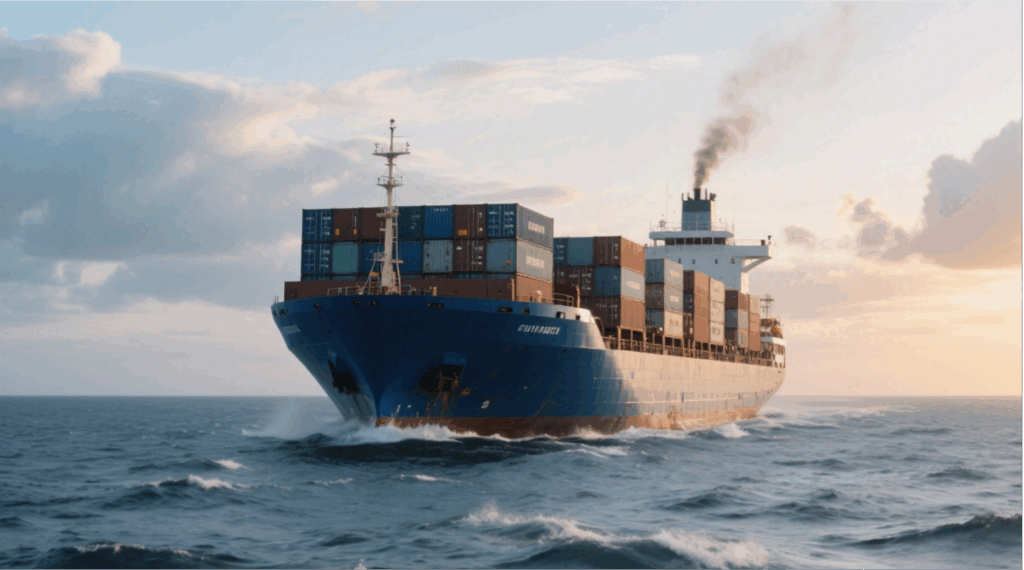- By Della tj
- November 8, 2025
- Sea Freight, Shipping
Global trade between China and Australia continues to expand rapidly, and finding cheap FCL shipping from Shenzhen to Australia has become essential for importers seeking cost-effective solutions. Full Container Load (FCL) shipping offers stable pricing, reliable schedules, and full control over your cargo. Many businesses prefer FCL for its efficiency and lower per-unit transport cost — especially for bulk goods.
What Makes FCL Shipping from Shenzhen to Australia So Popular?
FCL (Full Container Load) shipping means your cargo occupies the entire container without sharing space with others. This provides better cargo protection, lower damage risk, and faster handling during loading and unloading.
Advantages of FCL Shipping:
- Lower freight rates per unit for large volumes
- Simplified customs clearance process
- Secure and sealed container transport
- Flexible sailing schedules
- Ideal for heavy machinery, electronics, and furniture
Additionally, FCL is preferred for door-to-door and port-to-port shipments, offering smoother transit and predictable delivery times.
How Does Cheap FCL Shipping from Shenzhen to Australia Work?
FCL shipping involves several key stages, from booking to delivery.
| Step | Description | Responsible Party |
|---|---|---|
| Booking | Reserve 20GP, 40GP, or 40HQ container | Shipper / Forwarder |
| Cargo Pickup | Collect and load goods at warehouse | Freight Forwarder |
| Export Customs Clearance | Verify documents, HS codes, and licenses | Export Agent |
| Sea Transport | Container shipped via ocean carrier | Shipping Line |
| Import Customs Clearance | Process duties and GST in Australia | Customs Broker |
| Final Delivery | Truck or rail to consignee’s address | Local Forwarder |
Accordingly, professional freight forwarders coordinate each step to guarantee the lowest total cost and compliance with both Chinese and Australian regulations.
What Are the Main Sea Routes from Shenzhen to Australia?
Several major ports connect Shenzhen to Australian cities, ensuring flexible options for exporters and importers alike.
| Route | Destination Port | Transit Time (Days) | Main Carrier Lines |
|---|---|---|---|
| Shenzhen → Sydney | Port Botany | 13–16 | COSCO, CMA CGM, MSC |
| Shenzhen → Melbourne | Port of Melbourne | 15–18 | Maersk, Evergreen, OOCL |
| Shenzhen → Brisbane | Port of Brisbane | 14–17 | Hapag-Lloyd, ONE, Yang Ming |
| Shenzhen → Fremantle | Perth | 17–21 | MSC, PIL, ANL |
These weekly schedules allow for reliable shipment planning with both direct and transshipment options.
Real Case Studies: Successful FCL Shipments from Shenzhen to Australia
Case 1: Furniture Shipment
Route: Shenzhen → Melbourne
Cargo: 1×40HQ of wooden furniture (27,000 kg)
Freight Cost: $2,450
Transit Time: 17 days
Result: Cleared within 3 days after arrival with accurate documentation.
Case 2: Electronics Export
Route: Shenzhen → Sydney
Cargo: 1×20GP of LED light panels
Freight Cost: $1,680
Transit Time: 14 days
Result: Shipment released smoothly through professional customs handling.
FCL Container Options and Pricing Overview
| Container Type | Internal Volume (CBM) | Best For | Estimated Cost (USD) |
|---|---|---|---|
| 20GP | 33 CBM | Small-volume bulk goods | $1,400–$1,800 |
| 40GP | 67 CBM | Medium-to-large shipments | $2,300–$2,800 |
| 40HQ | 76 CBM | High-volume, lightweight goods | $2,500–$3,000 |
Note: Costs fluctuate based on season, fuel surcharge, and port congestion. However, consolidating shipments during off-peak months can further reduce rates.
Customs Clearance and Import Requirements in Australia
Every FCL shipment must pass through strict customs inspections. Australian authorities (ABF & DAFF) require accurate documentation to protect local markets and ecosystems.
Required Documents:
- Bill of Lading
- Commercial Invoice
- Packing List
- Import Declaration
- Certificate of Origin
- Quarantine Clearance (for wood/fabric goods)
Typical Customs Duties:
| Product Type | Duty Rate | GST |
|---|---|---|
| Electronics | 5% | 10% |
| Furniture | 0–5% | 10% |
| Textiles | 10% | 10% |
Moreover, using experienced customs agents ensures compliance and prevents costly delays caused by misdeclared HS codes or missing licenses.

How to Save Money on FCL Shipping from Shenzhen to Australia
There are several ways to minimize your total shipping cost while maintaining service quality:
- Book Early: Rates rise before peak export seasons.
- Negotiate Carrier Contracts: Long-term agreements often include discounts.
- Optimize Packing: Maximize container utilization to reduce per-unit cost.
- Use Coastal Ports: Shipping from Yantian or Shekou is faster and cheaper.
- Partner with Experts: Top China Freight offers volume-based savings and customs expertise.
Additionally, combining FCL shipments with inland trucking optimization can reduce overall logistics expenses by up to 10%.
Benefits of Choosing Cheap FCL Shipping from Shenzhen to Australia
| Benefit | Explanation |
|---|---|
| Lower Unit Cost | FCL provides the most economical transport for bulk cargo. |
| Faster Transit | Direct vessel service from Shenzhen ensures shorter lead times. |
| Full Control | The container is sealed for single consignee use. |
| Reduced Damage | No mixing with other cargo avoids contamination or breakage. |
| Easy Tracking | Real-time shipment monitoring enhances supply chain visibility. |
In addition, reliable forwarders like Top China Freight handle everything — from export declaration to final customs clearance — giving your business peace of mind.
Conclusion
In conclusion, cheap FCL shipping from Shenzhen to Australia offers unmatched value for large-volume shipments. With stable rates, reliable transit times, and secure container handling, it remains the most efficient shipping solution for businesses importing from China. By partnering with professional freight forwarders like Top China Freight, you gain access to expert documentation, customs compliance, and door-to-door delivery — ensuring your goods arrive safely, quickly, and within budget.
- Consult TJ China Freight Forwarding for the lowest quote. They will provide you with reliable, cost-effective service.
FAQ:
Q1.What is the cheapest way to ship containers from Shenzhen to Australia?
Booking FCL sea freight with a professional forwarder offers the lowest per-unit cost and consistent sailing schedules.
Q2.How long does FCL shipping take from Shenzhen to Australia?
Transit time averages 13–18 days depending on the destination port and vessel schedule.
Q3.Can I track my FCL shipment from Shenzhen to Australia in real time?
Yes, most carriers and forwarders provide 24/7 container tracking for transparency and cargo security.
Q4.What is the difference between 20GP and 40HQ containers?
A 20GP carries smaller loads (33 CBM), while a 40HQ provides 76 CBM for lightweight, high-volume cargo.
Q5.How are customs duties calculated for goods shipped from Shenzhen to Australia?
They’re based on product classification (HS code), CIF value, and applicable import tax and GST.





